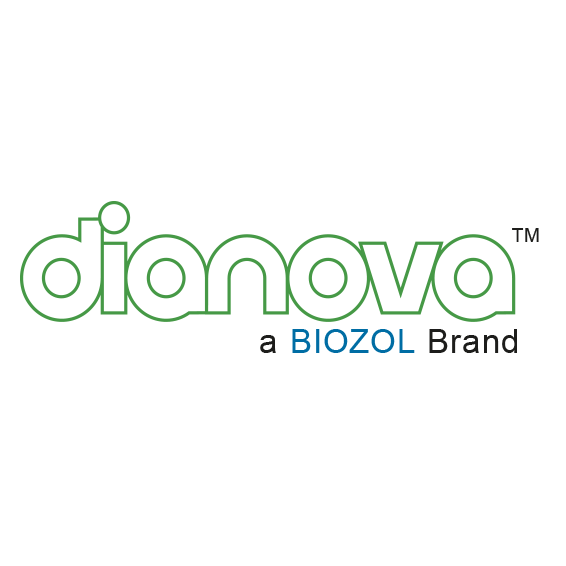Anti-FGF-4 (Hu) aus Kaninchen (Klon: pAk) – unkonj.

-
Übersicht
Artikelnummer CYT-074765 Spezifität Spezies-Reaktivität Wirtsspezies Isotyp Klon Klonalität (Mono-/Polyklonal) Anwendung Konjugation Zweckbestimmung Suchcode Hersteller / Marke -
Weitere Produktinformationen
FGF4 (fibroblast growth factor4), also known as FGF-K or K-FGF (Kaposi is sarcomaassociated FGF), is a 25 kDa secreted, heparinbinding member of the FGF family. The human FGF4 cDNA encodes 206 amino acids (aa) with a 33 aa signal sequence and a 173 aa mature protein with an FGF homology domain that contains a heparin binding region near the C terminus. Mature human FGF 4 (aa 71-206) shares 91%, 82%, 94% and 91% aa identity with mouse, rat, canine and bovine FGF4, respectively. Human FGF4 has been shown to exhibit cross species activity. Expression of FGF4 and its receptors, FGF R1c, 2c, 3c and 4, is spatially and temporally regulated during embryonic development. Its expression in the mouse trophoblast inner cell mass promotes expression of FGF R2, and is required for maintenance of the troph-ectoderm and primitive endoderm. Later in mouse development, FGF4 works together with FGF8 to mediate the activities of the apical ectodermal ridge, which direct the outgrowth and patterning of vertebrate limbs. FGF4 is proposed to play a physiologically relevant role in human embryonic stem cell selfrenewal. It promotes stem cell proliferation, but may also aid differentiation depending on context and concentration, and is often included in embryonic stem cell media in vitro. A C-terminally truncated 15 kDa isoform that opposes full length FGF4 and promotes differentiation is endogenously expressed in human embryonic stem cells. FGF4 is mitogenic for fibroblasts and endothelial cells in vitro and has autocrine transforming potential. It is a potent angiogenesis promoter in vivo and has been investigated as therapy for coronary artery disease.
Kontakt
